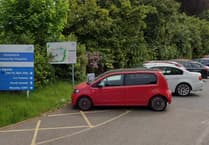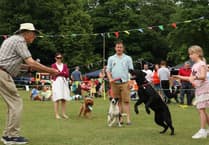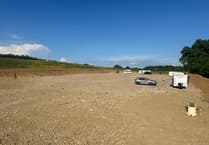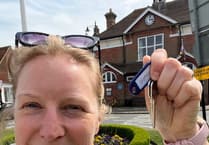As the orchards we help manage in the local area are well into the blossom season, we begin to look forward to observing the fruit start to form.
Last year saw a bumper crop on the Swan Barn National Trust orchards and we can’t help but wonder whether some of the trees might choose to take a rest and produce much less. Only time will tell.
Summer often leaves us with less orchard-related tasks to carry out but is a good time for forward planning. Much of our community orchard work is funded by grants so there’s quite a lot of time spent at the desk trawling for grant funds to apply to and lengthy form filling.
A break from that is had by our community development work with Waverley Borough Council in Haslemere, Cranleigh and Eashing working with residents and volunteers to add biodiversity-enhancing features to orchard sites, such as wildlife ponds, wildflower patches and wildlife hibernacula.
We recently received some funding from the Surrey Climate Commission which will allow us to supply hedgehog houses, bird boxes and wildflower seeds to some of these community orchard spaces.
We also take part in other activities related to biodiversity and wildlife conservation. Last summer, we joined the launch event of the Eashing Cemetery Orchard and Garden inviting attendees to join in with the Butterfly Conservation Trust’s Big Butterfly Count and COPSE will be leading on it again this year too.
The Big Butterfly Count is described by The Butterfly Conservation Trust as ‘a nationwide citizen science survey aimed at helping to assess the health of our environment.’
It reopens on July 1 ready for the main event between July 14 and August 6. Counting butterflies can be described as taking the pulse of nature and the data from these counts helps identify important trends and understand better the effect of climate change on wildlife.
Moreover, taking part in such activities is easy – and fun! That’s why we fill our quieter orchard seasons by taking part in these initiatives.
If you’d like to find out more, get involved or know of a site to survey, either visit www.butterfly-conservation.org for easy-to-use resources or contact us via our website at www.copseorchardproject.org and join some of our local counts.
In the meantime, we’ll be searching for more grants to fund our ongoing orchard work as well as developing our ‘Apple Club’ scheme aiming to match fruit harvest surplus in residents’ gardens, allotments and the like, with local individuals and organisations who can use it for community benefit.
By Claire Matthes
Community Orchard Project South East





Comments
This article has no comments yet. Be the first to leave a comment.